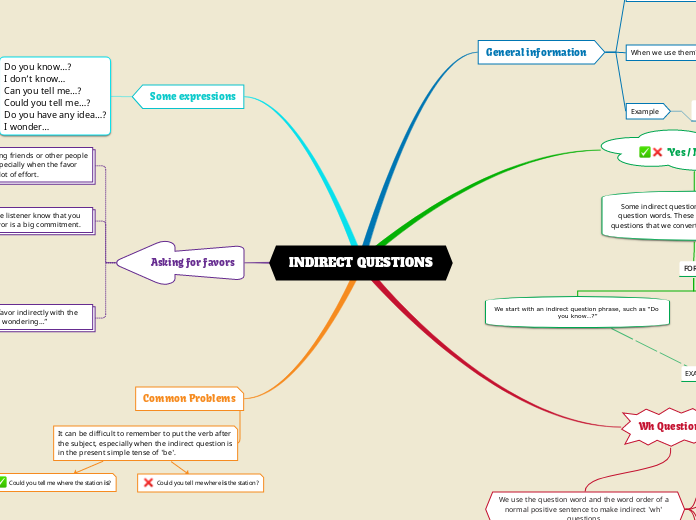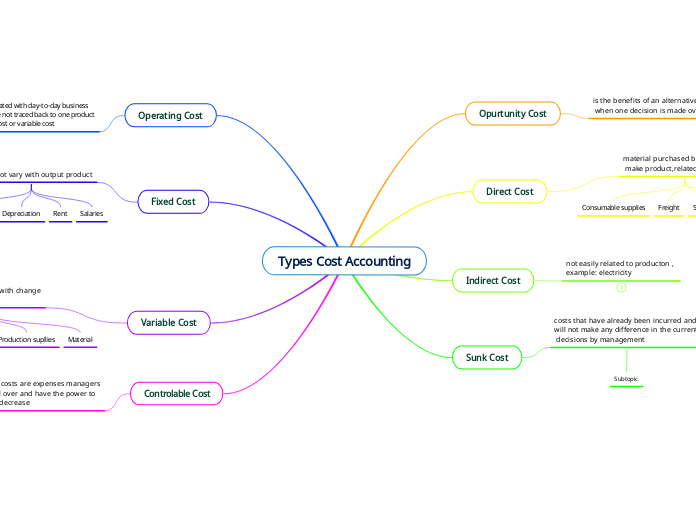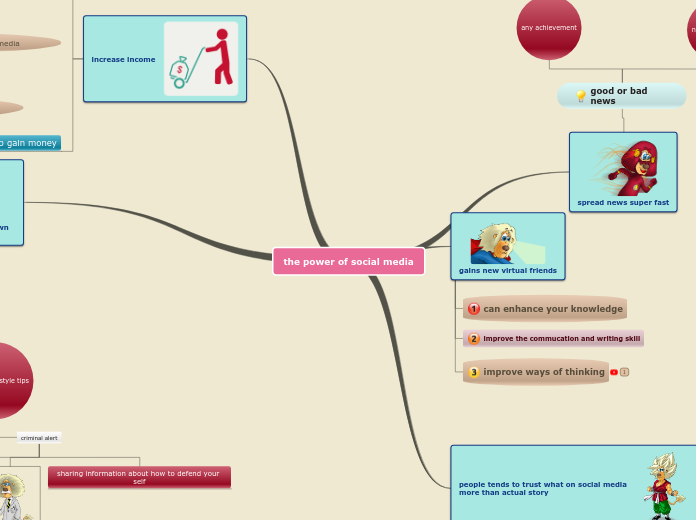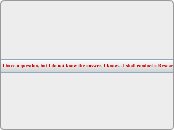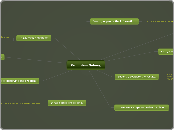INDIRECT QUESTIONS
Common Problems
It can be difficult to remember to put the verb after the subject, especially when the indirect question is in the present simple tense of 'be'.
Could you tell me where is the station?
Could you tell me where the station is?
Asking for favors
You can also ask a big favor indirectly with the phrase “I was wondering…”
Direct question:
Did you finish the report?
Indirect question:
I was wondering if you finished the report.
Is a very common way to politely ask a favor in English without sounding too demanding.
When we use “I wonder” or “I was wondering,” in a statement, we usually are seeking information, just like a question does.
I was wondering if you could help me move on Saturday.
Indirect questions let the listener know that you understand that the favor is a big commitment.
Is there any chance you could help me move on Saturday?
Would it be possible for you to help me move on Saturday?
Now, listen to the same question introduced by the indirect phrases: “Is there any chance…?” and “Would it be possible…?”
Direct question: Can you please help me move on Saturday?
Even with “please” in the direct question, it sounds a little too direct for such a major request.
Are also useful when asking friends or other people we know for a favor, especially when the favor requires a lot of effort.
Some expressions
Do you know…?
I don’t know…
Can you tell me…?
Could you tell me…?
Do you have any idea…?
I wonder…
Wh Questions
We use the question word and the word order of a normal positive sentence to make indirect 'wh' questions.
Can you tell me where David lives?
Can you tell me why Amanda called John yesterday?
Can you tell me when he will have finished the report?
Can you tell me why he is unhappy?
'Yes / No' Questions
Some indirect questions do not contain wh-question words. These are direct “yes or no” questions that we convert into indirect questions.
FORM
Then begin the noun clause with if or whether.
EXAMPLES
Can you tell me if Lisa will be meeting the boss later?
Do you know whether they’re coming with us?
Do you know if the game has started yet?
We start with an indirect question phrase, such as “Do you know…?”
General information
Example
Direct Question: What is her name?
Indirect Question: Can you tell me what her name is?
When we use them?
We use indirect questions when we want to be polite.
We use indirect them when we are talking to people we don’t know, including coworkers.
Also when asking for favors from friends or when we want to avoid sounding demanding.
What is an indirect question?
Indirect questions are a more polite way to ask for information or make requests.
